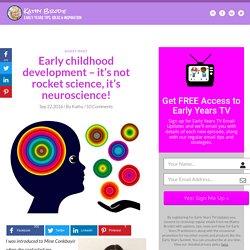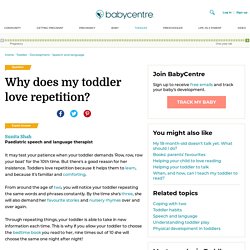

Rimmashulaeva
Book Creator - bring creativity to your classroom. BBC Learning English - Pronunciation. Pronunciation Skills Videos. Useful online reading resources. Surprisingly Simple Techniques for Challenging Behaviour - Kathy Brodie Early Years Training. I often get asked about children’s behaviour. It is a massive topic, with many facets. However, I would always start from the perspective that all behaviour, good or unacceptable, is a form of communication. It is how we, as practitioners and adults, respond to that communication that makes all the difference. The Webster Stratton method is a well known and widely used behaviour management strategy. The Power of Evening Routines.
The word “structure” can evoke less than positive associations. It suggests constraints, which are never a good thing, right? Wrong. It turns out that everyone benefits from a certain amount of daily structure, so long as that structure is pleasant, productive, and meaningful. Whether it’s the most inventive minds in history, or those people who live in good health past 100, a daily routine or set of micro-routines is correlated with productivity, health, and longevity. How do you speak 'Motherese'? News BBC News Navigation Sections Previous Next Media player Media playback is unsupported on your device. How baby brains develop. The Woman Who Changed Her Brain: Barbara Arrowsmith-Young at TEDxToronto. The Woman Who Changed Her Brain: Barbara Arrowsmith-Young at TEDxToronto.
You speak with an accent. I don’t. Early childhood development – it’s not rocket science, it’s neuroscience! - Kathy Brodie Early Years Training. I was introduced to Mine Conkbayir when she contacted me about neuroscience informing early years practice, which I think is such an exciting, and growing, area of study.

So I was very enthusiastic when she offered to do a guest post on this subject. Here she discusses how neuroscience can add another dimension to our understanding of child development: Like many individuals in this increasingly frantic world, I’m often busy juggling my responsibilities as a parent while I work and continue my studies – a very exciting journey as I try to achieve my PhD in early childhood education and neuroscience. Having been a lecturer across a range of child care and education qualifications for the past 14 years, I continue to be bewildered by the lack of consistently embedded teaching of neuroscience and early brain development across these qualifications. FAQ: Raising Bilingual Children. Why want bilingual children? There are many reasons, but the two most common are: 1) The parents speak different languages (say, an American woman and a Turkish man). 2) The parents speak the same language, but live in a community where most people speak something else (say, a Korean couple living in the USA).
In the first case, both the mother and father may want to be able to use their own language when talking to their children. This is the bilingual home situation. Don't children get confused when they hear two languages spoken around them? The short answer is no. Fifty years ago educators throughout North America used to tell immigrant parents that it was better for their children's schooling if they spoke English at home. Bilingual development sometimes results in slightly slower language development than for some monolingual children. Deb Roy: The birth of a word. Listen to Your Mother. Young children face a remarkable challenge in learning to use the language of their culture. Toddlers vary widely, however, in the rate at which they learn new words.1 A team of Harvard Graduate School of Education researchers set out to ask whether and how children's language environment can impact vocabulary development.
In their study of mother-child pairs from low-income families, they found that mothers who used many different words (not just many words) had toddlers with faster growth in vocabulary use. Let's Talk. What do babies need in order to learn and thrive? One thing they need is conversation — responsive, back-and-forth communication with their parents and caregivers. This interactive engagement is like food for their developing brains, nurturing language acquisition, early literacy, school readiness, and social and emotional well-being.
A dispiriting number of children don’t get that kind of brain-fueling communication, research suggests. In early childhood policy (and in the wider media), much attention has been paid to the so-called word gap — findings that show that low-income children hear 30 million fewer words, on average, and have less than half the vocabulary of upper-income peers by age three. But putting that alarming number in the spotlight obscures a more critical component of the research, says Harvard Graduate School of Education literacy expert Meredith Rowe: it’s not so much the quantity of words but the quality of the talk that matters most to a child’s development.
Why does my toddler love repetition? Paediatric speech and language therapist It may test your patience when your toddler demands 'Row, row, row your boat' for the 10th time.

But there's a good reason for her insistence. Toddlers love repetition because it helps them to learn, and because it's familiar and comforting. From around the age of two, you will notice your toddler repeating the same words and phrases constantly. Multilingual Preschoolers. It’s amazing how young children learn to converse with others. They have to not only internalize grammar and vocabulary, but also develop an understanding of culture: how to take turns in a conversation, who to talk to, and how to narrate a story. For dual language learners (DLLs) — children under the age of 5 with a home language other than English — that process can be complex.
These young children must constantly navigate between two languages and cultures, while learning the rules of both. And while the benefits of multilingualism are clear, these learners they may be excluded or teased because of their differences, which can hinder their development. As linguistic diversity skyrockets worldwide, early childhood educators need to be prepared to help DLL students meet and overcome these unique challenges. The Diversity of Languages in Early Education.